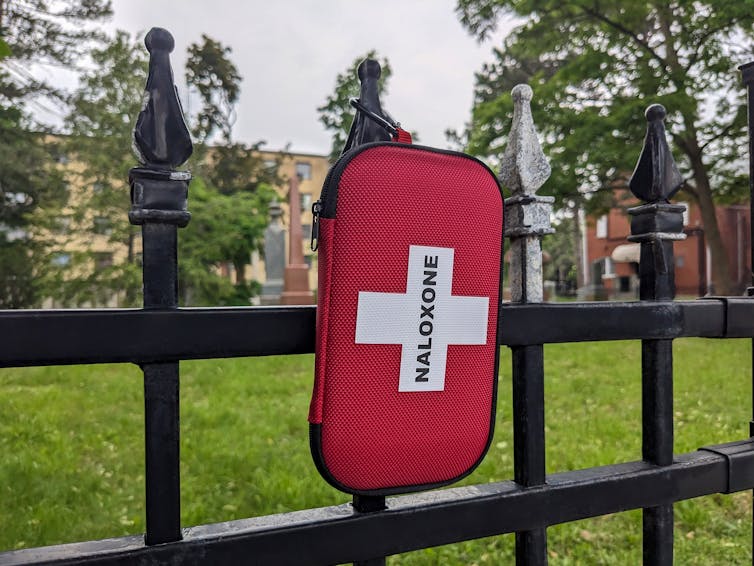Drug-related Deaths Have Risen By Record Numbers In England And Wales – Latest Data

Cocaine is the second most-used drug in England. PeopleImages.com - Yuri A/ Shutterstock
Deaths from drug use in England and Wales have risen by 11%, according to the latest annual data published by the Office for National Statistics (ONS). In 2023, there were 5,448 fatalities (93 deaths per million people) – the highest number of drug-related deaths since records began in 1993.
Over half these deaths involved opiates, such as heroin and morphine. The highest rate of deaths from opiate misuse was among those aged between 40 and 49 years old.
It’s unknown how many opiate deaths last year were due to synthetic opiates, such as nitazenes. Delays in when the data on synthetic opiate deaths was published meant it could not be included in this latest report. But while these drugs remain of serious concern, and related deaths may be being under-counted, heroin remains the opiate associated with most harm.
Those born in the 1970s (referred to as “generation X”) are more likely to die from drug misuse than any other age group. It’s not entirely clear why drug deaths are higher in this age group, but it could be due to people beginning to develop a number of physical and mental health problems in their forties that make them more vulnerable to a fatal overdose. For example, breathing problems could make someone more vulnerable to an opiate overdose, as these drugs have a depressant effect on the respiratory system.
Men of any age outnumber women two-to-one in deaths from drug misuse – a finding which has been true since records began. Men are more likely to use drugs than women, which may account for the difference in fatalities.
There are also stark regional differences in drug-related deaths. For example, the north-east of England continues to have much higher rates of deaths from drug misuse, compared with other parts of the country.
There were 174.3 drug-related deaths per million people in the north-east, compared with 58.1 drug-related deaths per million people in London. The rate of drug-poisoning deaths reported in the north-east were the highest they have been for the past 11 years. In the main, these deaths will have been due to an instant fatal overdose, while other deaths will have been cumulative.
The stark regional differences in all drug-related deaths align with socioeconomic factors, such as poverty and deprivation. There’s a strong link between socioeconomic deprivation and problematic drug use.
As the popularity of cocaine has increased over the past decade – it is now the second-most used drug in England after cannabis – so too have fatalities. Although it’s not possible to distinguish from the data whether these fatalities were from crack or powder cocaine, the ONS recorded the 12th consecutive rise in deaths due to cocaine, with such deaths rising almost 31% year-on-year. This is a large rise, even in the context of increasing drug-related deaths over the past 20 years.
One possible explanation for this sharp increase could be that the purity of cocaine has been increasing without the cost going up. This makes cocaine not only more potent, but more affordable to more people than it was. Yet despite high levels of cocaine use throughout England, there have been no coordinated prevention and harm reduction campaigns. Treatments also remain underdeveloped compared with other drugs.
Many of the drug deaths deaths published in the ONS’s report involved multiple substances, including alcohol. So we can’t be certain in many cases which drug was the cause of a death.
And some of these deaths occurred in people who had other physical health problems – such as respiratory problems, heart issues and liver disease. These health problems are exacerbated by use of drugs such as heroin and cocaine. This again makes it hard to attribute some deaths entirely to drug use.
What can be done?
The UK government is funding research to explore whether artificial intelligence could help reduce drug overdoses. Some of the projects that have received funding involve using wearable devices that would alert emergency services if signs of an overdose are detected.
Existing interventions could also be more widely adopted. Naloxone, a medication that can reverse the effects of opiates, should be made more widely available. While some emergency services carry Naloxone, there’s scope to broaden this so those most at risk have timely access to this life-saving medication.
 Making Naloxone more accessible could save lives.
Elena Berd/ Shutterstock
Making Naloxone more accessible could save lives.
Elena Berd/ Shutterstock
There’s also a pressing need to change how health services are provided to people struggling with drug misuse – and the kind of services they can access. For example, people that use heroin daily can find it difficult to keep appointments with health services. Tailoring when and where health support is provided could help engage this group of people.
Stigma around drug use can also prevent people seeking help – or when they do, they can feel judged by others. But there are ways of providing these necessary services that would make it easier for people who are struggling to get the help they need without judgment.
Improving the knowledge and skills of staff in specialist drug treatment services about physical health problems would be one positive step. Being able to directly intervene by assessing and treating cardiac and respiratory issues, for instance, would eliminate the need for drug users to attend multiple appointments in different locations. This would make them more likely to continue accessing services.
The Labour government has made it clear that it will be difficult to ensure public services receive all the resources they need. Yet every year, we are seeing record levels of drug-related deaths across the UK.
It’s clear that what is currently being done is not enough. More money needs to be invested in specialist drug treatment services, both to save lives and improve the quality of life for all those who face problems with drugs. This will provide economic savings in the long term, and reduce the suffering that too many families experience.
Harry Sumnall receives funding from public grant awarding bodies for alcohol and other drugs research, and fees from (international) not-for-profit organisations and government departments for consultation work. He is an unpaid member of the Scientific Advisory Board of the Mind Foundation, the Scientific Advisory Board of the International Society of Substance Use Professionals, an unpaid advisor to the UK Drug Education Forum, and an unpaid co-opted member of the UK Government Advisory Council on the Misuse of Drugs (ACMD) Working Groups.
Ian Hamilton does not work for, consult, own shares in or receive funding from any company or organisation that would benefit from this article, and has disclosed no relevant affiliations beyond their academic appointment.


